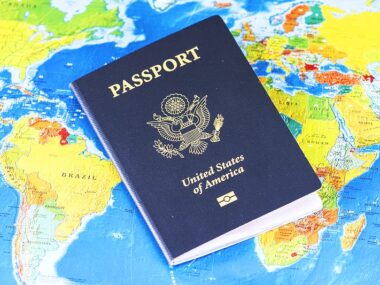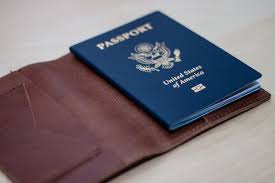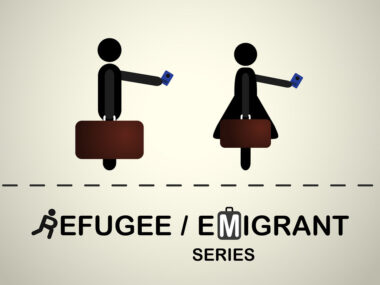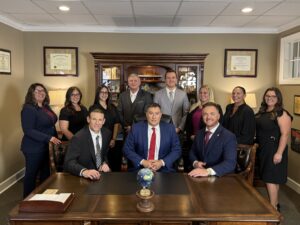Migrating to the United States is a life-changing opportunity, and for many families around the world, family-based U.S visas provide a pathway to reunification and new opportunities. However, the journey of applying for a visa, securing relocation support, and making housing arrangements can seem daunting. Fortunately, there are several family-based visa programs that offer not only the opportunity to live and work in the U.S. but also relocation packages, including flight tickets and housing assistance. This article will explain the process of obtaining a family-based U.S. visa, the relocation benefits available, and the steps involved to help you navigate this complex journey.
When applying for a family-based U.S. visa, the primary goal is to bring family members together, whether it’s for spouses, children, parents, or siblings of U.S. citizens or legal permanent residents. The process may vary depending on the specific type of family-based visa, but the common thread is the desire to live in the U.S. and enjoy the benefits of American life. In many cases, U.S. citizens or lawful permanent residents can sponsor their family members through a petition process that starts with Form I-130, the Petition for Alien Relative.
One significant aspect of immigrating to the U.S. involves preparing for the transition, which includes securing essential services such as flight packages and housing assistance. Many sponsors and employers offer relocation assistance to make the transition easier for immigrants. These benefits can reduce the financial and emotional burden of moving, ensuring that the family has a smoother transition when they arrive in the U.S. This article will guide you through the specifics of family-based U.S. visas and how to access relocation support such as flight packages and housing assistance.
What is a Family-Based U.S. Visa?
A family-based U.S. visa allows U.S. citizens and lawful permanent residents (green card holders) to sponsor certain family members for immigration to the United States. There are two primary categories of family-based visas: Immediate Relative (IR) Visas and Family Preference (F) Visas.
Immediate Relative (IR) Visas
The Immediate Relative (IR) visa category is for the close family members of U.S. citizens. These include:
- Spouses of U.S. citizens
- Children under 21 of U.S. citizens
- Parents of U.S. citizens (if the citizen is at least 21 years old)
The IR visa is typically processed faster than the Family Preference category because there is no annual limit on the number of visas issued. These visas allow the family member to live and work in the U.S. as a legal permanent resident.
Family Preference (F) Visas
The Family Preference (F) visa category is for family members of U.S. citizens and lawful permanent residents who do not qualify for the IR visa. The F visa includes:
- F1: Unmarried sons and daughters (21 years or older) of U.S. citizens
- F2A: Spouses and children (under 21 years old) of lawful permanent residents
- F2B: Unmarried sons and daughters (21 years or older) of lawful permanent residents
- F3: Married sons and daughters of U.S. citizens
- F4: Brothers and sisters of U.S. citizens (if the U.S. citizen is 21 years or older)
The Family Preference visas have annual caps, meaning there can be long waiting times depending on the category and the applicant’s country of origin.
How Family-Based U.S. Visa Works with Relocation Assistance
Once you’ve secured a family-based U.S. visa, the next step is to prepare for your relocation to the United States. The process of moving to a new country can be overwhelming, but many U.S. employers and family members provide support to make the transition smoother.
Relocation Packages for Immigrants
Many immigrants who receive family-based U.S. visas can qualify for relocation packages that include flight tickets, housing, and sometimes additional settlement allowances. Here’s a breakdown of the types of support you might receive:
Flight Packages
A key part of the relocation package is the flight ticket. Some employers or family members may offer to cover the costs of your travel to the United States, ensuring that you can afford the trip without worrying about the financial strain of international flights. Sponsors often provide a direct flight or reimburse applicants for their travel expenses, which can ease the burden of relocating.
Housing Assistance
Once you arrive in the U.S., securing affordable housing can be one of the most challenging aspects of the immigration process. Some employers, universities, or family sponsors may offer housing assistance to immigrants. This can include financial support for renting an apartment, covering part of the first month’s rent, or even providing accommodation in company-owned housing or family residences temporarily. This support ensures that you have a place to stay while you adjust to your new life in the U.S.
How to Apply for Relocation Assistance
To qualify for relocation assistance, ensure that your sponsor (whether a U.S. citizen, permanent resident, or employer) includes this benefit as part of the immigration process. Often, housing assistance and flight packages are negotiated at the time of the sponsorship agreement or through employer-specific benefits. Be sure to discuss the possibility of these benefits with your sponsor and ensure they are included in your visa petition.
Steps Involved in Securing Family-Based U.S. Visa with Relocation, Flight, and Housing Assistance
The process of securing a family-based U.S. visa with additional benefits like relocation, flight, and housing assistance involves multiple steps. Below are the essential steps you will need to follow:
1. Eligibility Check
To begin, ensure that you and your family members are eligible for a family-based visa. U.S. citizens or permanent residents must sponsor you. You will need to provide proof of your relationship to the sponsor (e.g., marriage certificates, birth certificates, etc.).
2. File Form I-130 (Petition for Alien Relative)
Once you’ve established eligibility, your U.S. sponsor must file Form I-130 with U.S. Citizenship and Immigration Services (USCIS). This petition establishes the family relationship and is a critical step in the visa process.
3. Visa Processing and Approval
After the I-130 petition is approved, you will need to go through visa processing, which includes attending an interview at a U.S. consulate or embassy. During the interview, you will need to provide documents like medical records, police clearances, and proof of financial support.
4. Relocation Assistance Negotiation
Once your visa is approved, it’s time to plan your relocation. If you have arranged a job or family sponsorship, discuss the potential for flight packages and housing assistance. Confirm the details of these benefits with your sponsor before your arrival.
5. Travel and Settle in the U.S.
Once you’ve received your visa, book your flight and begin preparing for your move. If your sponsor is providing relocation support, follow their guidelines to ensure a smooth process.
Challenges and Solutions
While the process of applying for a family-based U.S. visa with relocation assistance can be complex, it’s important to be aware of potential challenges. These include long wait times for visa approval, especially for family preference categories, and the uncertainty of securing housing in high-demand U.S. cities.
To overcome these challenges, stay proactive by regularly checking the Visa Bulletin for updates on processing times and preparing your documentation early. Additionally, discussing housing options with your sponsor in advance can help ensure that you have a place to stay upon arrival.
Conclusion
Obtaining a family-based U.S. visa with relocation, flight, and housing assistance is a significant step towards building a better future for yourself and your loved ones in the United States. By following the application steps, securing sponsorship, and negotiating relocation benefits with your sponsor, you can enjoy a smoother transition and a more comfortable settlement in the U.S.
The support offered through flight packages and housing assistance can significantly ease the financial burden of immigration and help you focus on starting your new life in the U.S. As you navigate the process, remember to stay organized, meet all visa requirements, and explore the various benefits available to make your U.S. immigration journey as seamless as possible.










